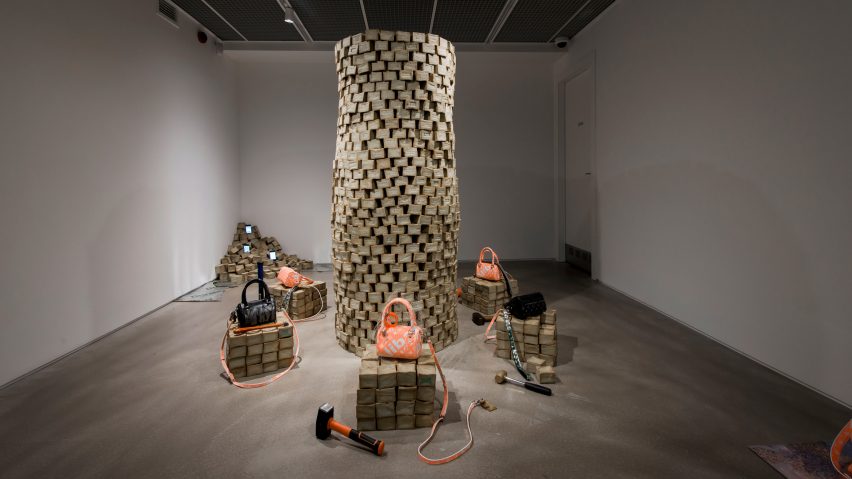
Open Sesame installation pairs Syrian soap with Alibaba.com leather bags
Designer Charlotte Maëva Perret has built a towering installation of soaps made by Syrian refugees and Albibaba.com luxury leather bags to help people visualise the connection between offline production and global online retail.
Called Open Sesame: Exercises in entrepreneurship, Perret's installation is on show for the Istanbul Design Biennial. Its aim is to highlight the fact that global online retail platforms have huge impacts on the places that manufacture their goods.
It does this by bringing together the Syrian folk tale of Ali Baba and the Forty Thieves and the Chinese online retail giant Alibaba.com.
"The installation hopes to remind the visitor of the offline bodies and invisible geographies that participate in late capitalism choreographies," the French designer and visual artist told Dezeen.
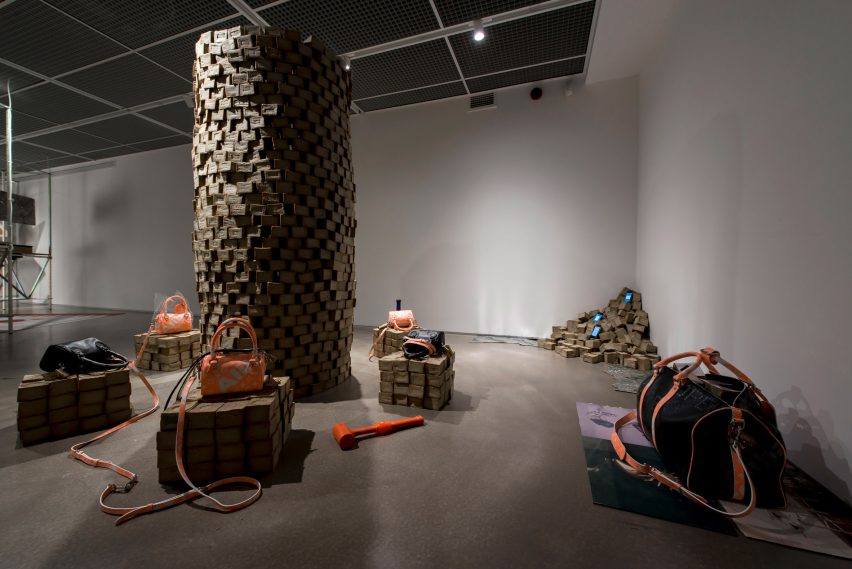
The centrepiece in the exhibition is a column of soaps that were made in a factory in southern Turkey, arranged as they are stacked to dry.
On additional stacks of soaps that surround the column, Perret has placed a range of counterfeit leather bags printed with online retailer Albibaba.com's branding, which she designed and manufactured in Turkey.
Perret describes the soaps and bags as "made for survival", as they are examples of the items made by smart business people who have been forced to leave their home country.
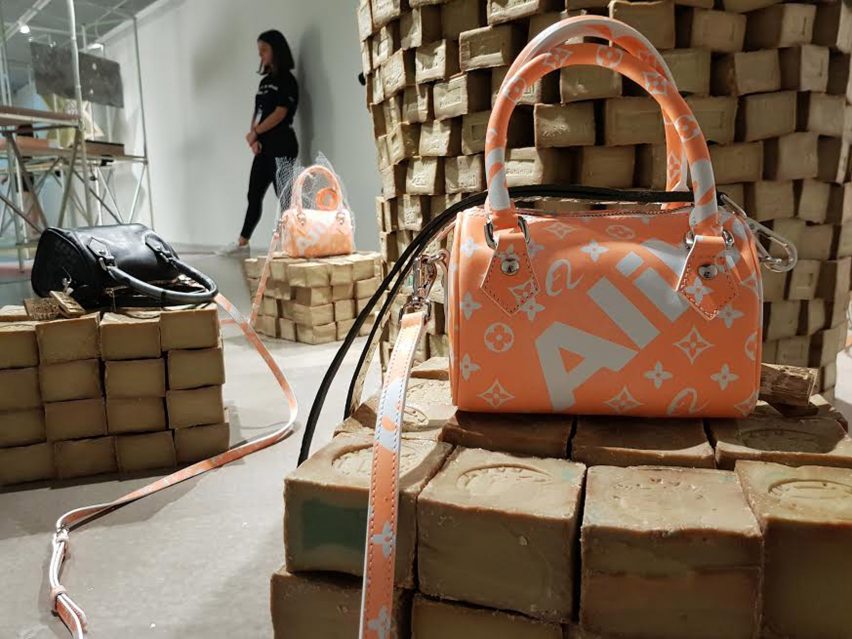
"My research is concerned with rapid large scale transformations of the last few decades such as the decline of mass production and the disappearance of factories in western Europe," said Perret.
"I'm interested in how it has not only generated a void in our landscapes but also a disconnection with our understanding of materiality, labour and provenance. We seem to never allow a space or a pause to digest these transformations."
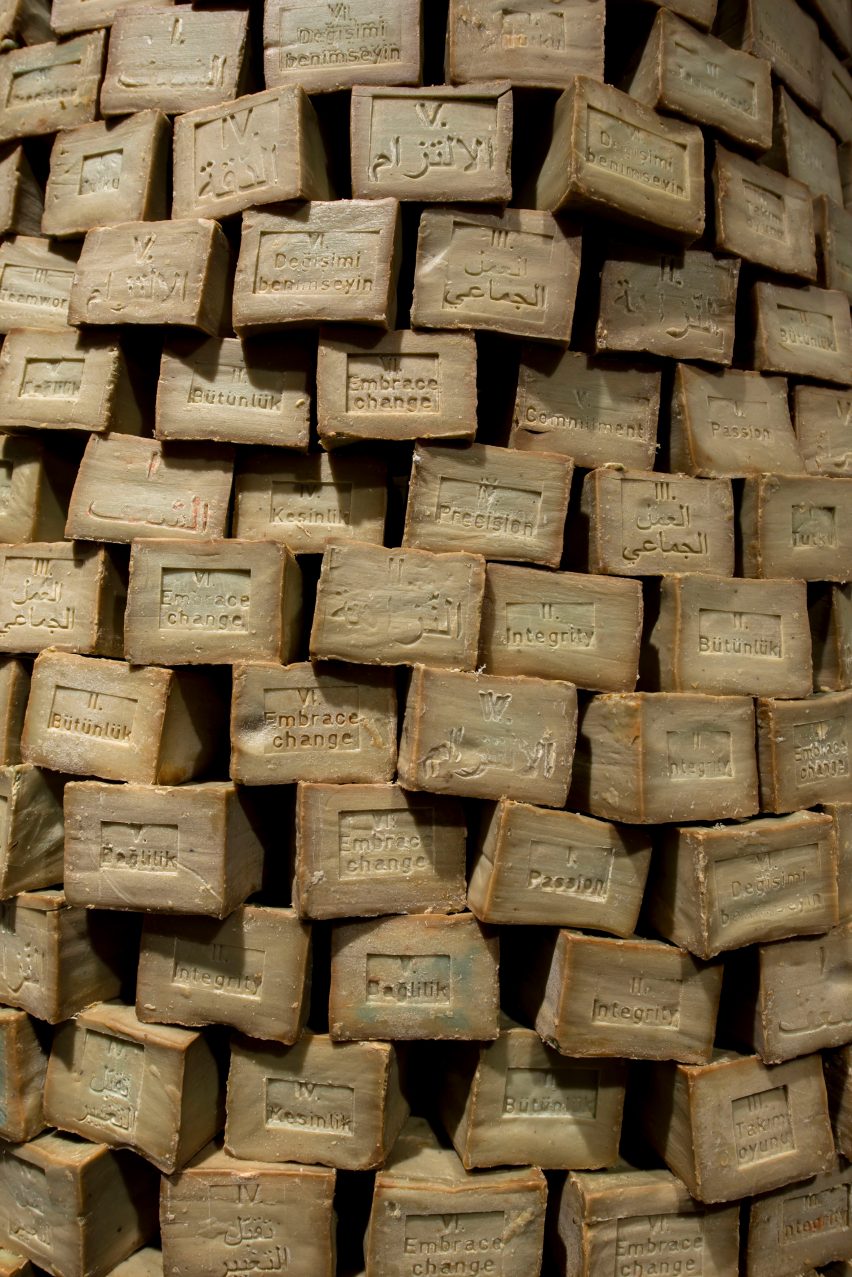
Alibaba.com – the seventh most valuable company in the world – is the e-commerce platform that often directly connects individuals around the world to factories.
As a result of the refugee crisis in Syria, many of the factories that manufactured soap in Aleppo have relocated to southern Turkey.
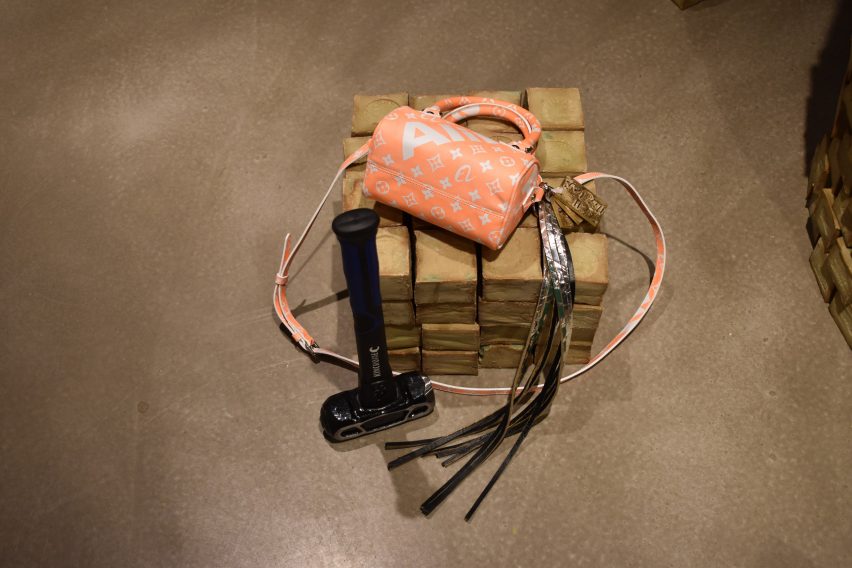
"'Ali Baba was a kind, smart business person, and he helped the village' says Jack Ma, founder of Alibaba.com," explained Perret."My project develops a narrative from the point of view of individuals who exchange knowledge, develop new cultures and design objects from precarious economies."
"From Syrian refugees reopening Aleppo soap factories and leather ateliers replicating luxury handbags, to illegal street vendors who occupy Europe's civic spaces selling souvenirs, the project asks who the 'smart and kind business men' of our villages are today."
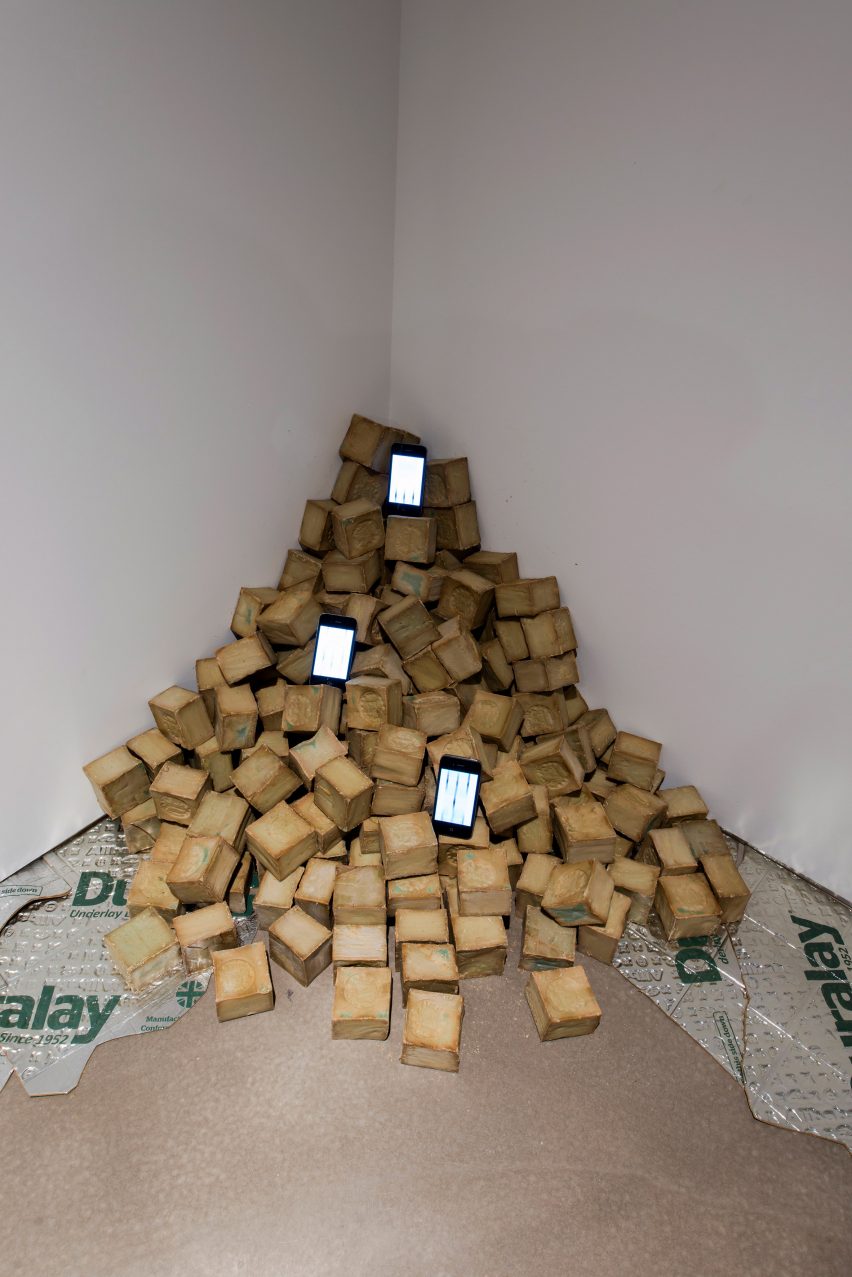
"Alibaba.com brings this phenomena into light by opening the doors of the world's factory. The sudden transparency on supply-chain infrastructures and the mechanics behind production cycles transforms the consumer's understanding of materiality and value," continued Perret.
"When the individual is more and more aware and educated to those processes, they begin to questions whether we have the agency to provoke large scale transformation."
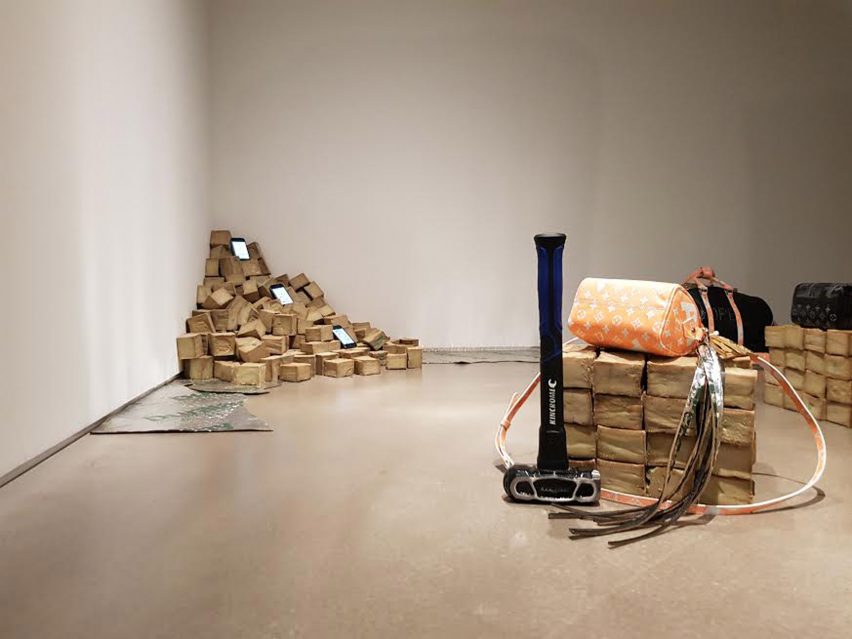
Alongside the soaps and bags, Perret has written six poems inspired by the values of the online retailer. These are displayed on smart phones incorporated into the installation.
The fourth Istanbul Design Biennial takes place from 22 September to 4 November 2018. It is curated by Belgian curator and educator Jan Boelen, who recently stated that the use of recycled plastic in design is "bullshit".
Also at the biennial, Pinar Yoldas created nine designer babies based on the characteristics of hellenic gods and goddesses, while Karim Bayer deconstructed 1,366 maps to create "atlas of atlases".
Photography is by Kayhan Kaygusuz.